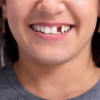
Causes and Solutions to bad breath
Do you suffer from occasional bad breath? Most of us do, and this is something this is also called halitosis or malodour. Halitosis is usually related to eating strongly flavoured foods and is something that will quickly pass. Halitosis is more of a problem if it becomes persistent, and is something that can be pretty embarrassing. The good news is that halitosis is usually pretty easy to fix. If you think you may have halitosis then it’s important to take action, as although it’s frequently caused by poor oral hygiene it can also be due to other factors.
Which Habits Can Cause Bad Breath?
Poor Oral Hygiene
Twice daily brushing combined with flossing once a day is sufficient to remove the food particles that remain after eating, but if you don’t do this then the food particles will promote the growth of bacteria in your mouth, not only in between your teeth, but also on your gums and tongue. This bacterial growth will cause bad breath, and rotting food particles will also release noxious odours.
Smoking
Smoking or using other tobacco-based products can promote bad breath. In addition the nicotine will irritate the gums, will stain your teeth, and will reduce your ability to taste food properly.
Bad breath can sometimes be due to poorly fitting dental appliances, such as dentures or braces. It may also be down to yeast infections, or untreated cavities in your teeth.
Bad Breath Could Be Due to Other Medical Problems
Dry Mouth
Dry mouth, a condition called xerostomia, can frequently cause bad breath. Dry mouth is a condition where insufficient saliva is produced to keep the mouth clean. Saliva is very important for helping to keep the mouth moist and comfortable. It helps to cleanse the mouth through neutralizing the acids produced by plaque, and washes away excess food particles and dead skin cells that would otherwise accumulate on the soft tissues in the mouth. If these dead skin cells are not regularly removed they will begin to decay, and will contribute towards bad breath.
Bad breath can also be due to medical conditions such as acid reflux, diabetes, respiratory tract infections, and it may even be due to liver and kidney problems.
Taking Action to Prevent Bad Breath
Practice Good Oral Hygiene
You can help to prevent bad breath through practising good oral hygiene. Use fluoride toothpaste to brush twice a day, and make sure you floss once a day. It helps to brush your tongue, either by using your toothbrush or a special tongue scraper. Replace your toothbrush every three months, or more frequently if it begins to look worn and frayed. If you wear dentures, then be sure to remove them at might, and to clean them thoroughly. You can use mouthwash to freshen your breath, but it is worth using one that has an antibacterial action, as some are purely cosmetic and will only temporarily mask bad breath.
Make an Appointment for a Check-up Twice a Year
Make an appointment to come and see us twice a year, or more frequently if recommended. This will give us the opportunity to check your mouth for any problems that could cause malodour. We can treat any cavities before they create problems, and will ensure any dental appliances are fitting correctly. We can also offer treatment and advice for dry mouth. If you do have bad breath, and we cannot find the cause, we may suggest you visit your doctor, Just in case it is being caused by an undiagnosed medical condition.
If you smoke, then it will help your breath, and your oral and general health, if you quit or at least cut down. You can help to keep your breath fresh by making sure you drink plenty of water, and that you are always well hydrated. Drinking water after a meal will help to wash away excess food particles, and to neutralize acids in the mouth. If you are unable to drink water then chewing sugar free gum or sugar free candy will help stimulate the flow of saliva, which in turn will help to wash away food particles, bacteria, and skin cells.
Some people find it helpful to make a note of the foods they eat, as this can provide a useful reference as to which foods are responsible for causing bad breath. Certain prescription medications may sometimes cause bad breath, or dry mouth. If you think this is the case then discuss it with your physician to see if there are any alternative medicines that can be prescribed. You should never stop taking prescription medicines without first seeking medical advice.



